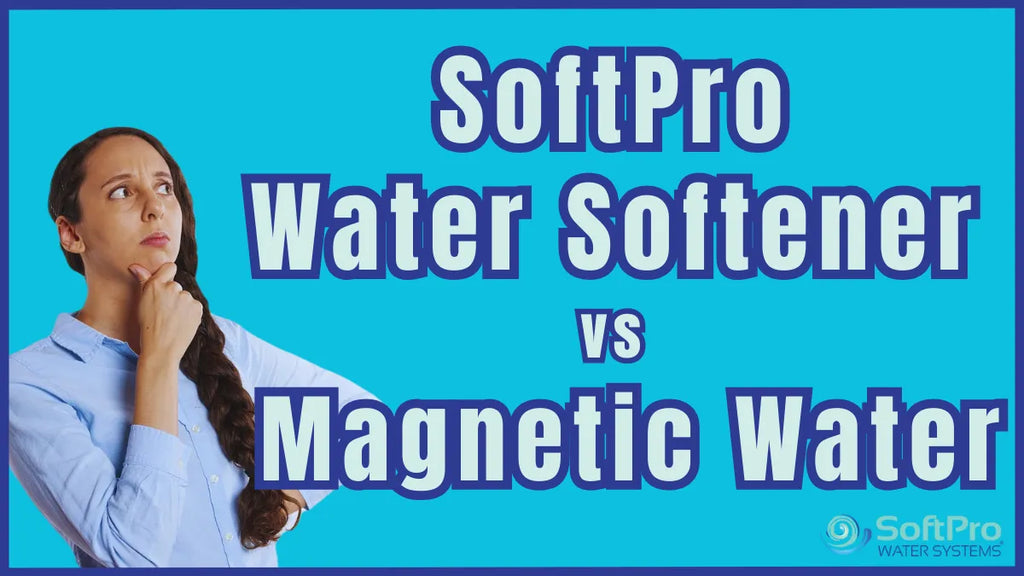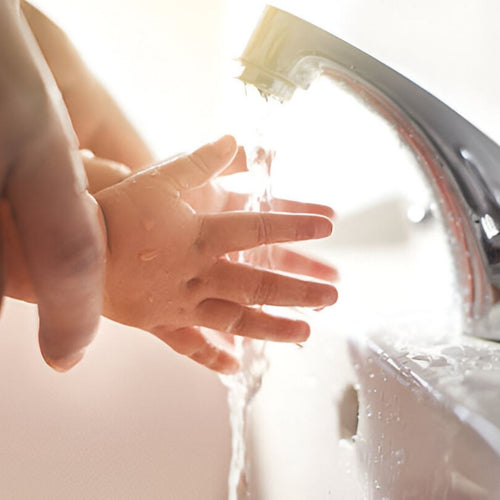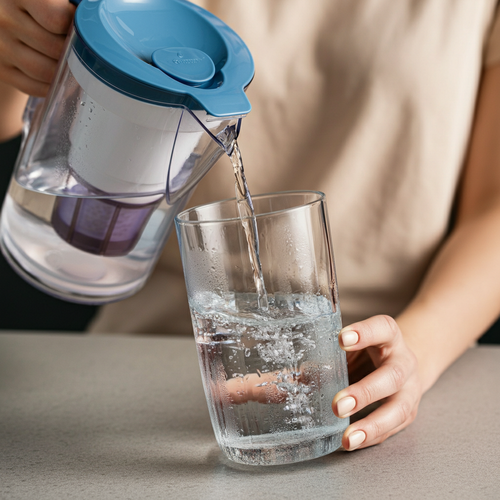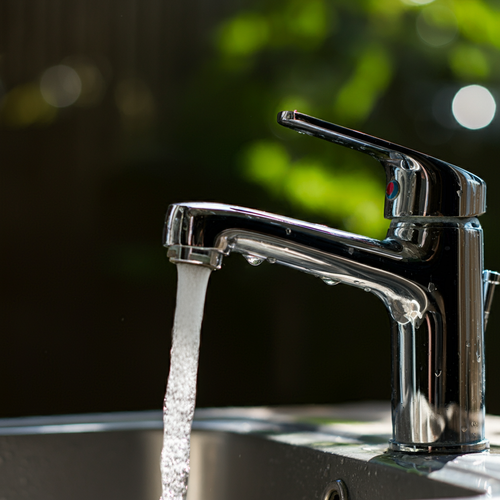Understanding Hard Water
Hard water, the bane of sparkling dishes, soap scum-laden fixtures, and stubborn scale buildup, plagues countless homes across the country. Its mineral-laden grip wreaks havoc on your plumbing, appliances, and even your hair. But fear not, for you're not alone in this battle! This article will equip you with the knowledge and insights needed to vanquish hard water, guiding you towards the optimal solution for your home's specific needs.
What is Hard Water?
Hard water is characterized by high concentrations of dissolved minerals, primarily calcium and magnesium. These minerals, beneficial in moderation for health and agriculture, become problematic in excess. As they flow through your plumbing, they react with soap, forming insoluble scum that hinders cleaning and efficiency. Additionally, hard water deposits scale, a chalky buildup, on pipes, faucets, and appliances, reducing their lifespan and performance.
Signs and Symptoms of Hard Water in Your Home:
- Soap scum residue on dishes and showers: Even with proper scrubbing, a film of soap scum persists, hindering the cleaning process.
- Stiff and scratchy laundry: Clothes feel rough and harsh after washing, often exhibiting discoloration and fading.
- Scaly buildup on faucets, showerheads, and appliances: Visible white or gray deposits accumulate on fixtures, requiring frequent cleaning.
- Reduced water pressure and flow: Over time, scale buildup can clog pipes and restrict water flow, leading to decreased pressure and performance.
- Inefficient appliance operation: Hard water can impair the functioning of dishwashers, washing machines, and water heaters, increasing their energy consumption and shortening their lifespan.
Why Treat Hard Water?
Ignoring hard water doesn't make it disappear. Its detrimental effects only worsen over time, leading to costly repairs, appliance replacements, and increased energy bills. Treating hard water not only improves the aesthetics and functionality of your home but also protects your plumbing system and appliances, extending their lifespan and saving you money in the long run.
With this understanding of the villainous hard water, we're ready to explore the two main contenders in the battle for clean, soft water: SoftPro water softeners and magnetic water technologies. In the following sections, we'll delve into their effectiveness, cost, usability, and environmental impact to help you determine the perfect champion for your home.
Head-to-Head: SoftPro Water Softeners vs. Magnetic Water Technologies
The fight against hard water demands effective weapons, and the two main contenders – SoftPro water softeners and magnetic water technologies – offer distinct approaches. Understanding their strengths and weaknesses in key areas is crucial for selecting the optimal solution.
Effectiveness: Taming the Scales
SoftPro Water Softeners: Backed by decades of proven technology, SoftPro softeners employ ion exchange to combat hard water. Hard water flows through a resin bed saturated with sodium ions. Calcium and magnesium minerals swap places with the sodium, effectively rendering the water soft. This method boasts high removal rates (up to 99%) for hardness minerals, tackling even the most challenging water conditions.
Magnetic Water Technologies: These systems claim to alter the properties of hard water using magnets. The theory proposes that magnetic fields weaken the bonds between mineral ions, preventing them from forming scale and clinging to surfaces. However, scientific evidence and independent testing demonstrate limited effectiveness of these technologies, often achieving only minimal reductions (10-15%) in hardness minerals.
Verdict: In terms of effectiveness, SoftPro water softeners are the clear victors, delivering undeniable and consistent results. Magnetic technologies fall short, offering minimal and unsubstantiated benefits.
Cost: Weighing the Investment
SoftPro Water Softeners: Upfront costs for SoftPro systems vary depending on size, capacity, and features. Initial installation might require professional assistance, adding to the expense. However, ongoing maintenance involves primarily salt replenishment, which can be managed cost-effectively. Additionally, the benefits of softened water, such as prolonged appliance lifespan and reduced cleaning needs, can lead to long-term cost savings.
Magnetic Water Technologies: These systems boast low upfront costs due to their simple installation and lack of ongoing maintenance. However, their limited effectiveness might necessitate additional water treatment solutions in the future, potentially negating the initial cost savings.
Verdict: While SoftPro softeners have a higher upfront cost, their superior effectiveness and potential cost savings over time make them a more balanced investment in the long run. Magnetic technologies offer a cheaper price tag but fail to deliver on their promises, potentially leading to additional expenses in the future.
Hidden Costs to Consider:
- Water Waste and Environmental Impact: SoftPro softeners utilize a salt-based regeneration process, generating wastewater that requires proper disposal. This can incur additional costs and raise environmental concerns. Magnetic technologies, however, have minimal environmental impact.
- Energy Consumption: Both systems require electricity to operate, but SoftPro softeners typically consume more due to the regeneration process. Comparing energy efficiency ratings can help make an informed decision.
Remember, the "cost" goes beyond the price tag. Consider the long-term financial and environmental implications to find the most sustainable and cost-effective solution for your needs.
Usability: Convenience and User Experience
Beyond effectiveness and cost, usability plays a critical role in choosing the right weapon against hard water. Let's compare the convenience and user experience of SoftPro water softeners and magnetic water technologies.
Installation Process: DIY vs. Professional
SoftPro Water Softeners: Installation can be straightforward for DIY enthusiasts with basic plumbing knowledge. However, complex systems or homes with limited space might require professional assistance. Expect installation time to range from a few hours to a full day.
Magnetic Water Technologies: These systems typically boast simple, DIY-friendly installation. Often requiring only connection to the main water line, they can be completed within minutes.
Verdict: Magnetic technologies win on initial ease of installation, appealing to DIYers. However, for complex systems or those seeking professional peace of mind, SoftPro softeners offer the expertise and support of qualified plumbers.
Maintenance Requirements: Time and Technical Expertise
SoftPro Water Softeners: Routine maintenance primarily involves adding salt to the brine tank, typically every 2-4 weeks depending on water usage. Additionally, periodic system cleaning and occasional filter replacements might be necessary. These tasks require minimal technical expertise and can be performed by most homeowners.
Magnetic Water Technologies: Generally requiring no ongoing maintenance, these systems offer a hands-off approach. However, their effectiveness might diminish over time, potentially necessitating cleaning or replacement of internal components.
Verdict: SoftPro softeners demand more regular attention but maintain consistent performance. Magnetic technologies offer convenience but raise concerns about long-term effectiveness and potential maintenance needs.
Interface Complexity and User-friendliness
SoftPro Water Softeners: Modern systems feature user-friendly control panels with digital displays and simple button controls. Programming settings and monitoring performance are intuitive and require minimal technical knowledge.
Magnetic Water Technologies: Many of these systems lack any interface or programming options. Installation and operation are straightforward, requiring no user input beyond adjusting the magnet placement in some models.
Verdict: While both offer ease of use, SoftPro softeners provide greater control and visibility into system performance for technophiles or those desiring precise water softening management. Magnetic technologies favor simplicity and minimal user interaction.
Remember, usability preferences are individual. Consider your comfort level with technology and desired level of control when making your choice.
Pros and Cons
Now that we've grasped the key battlegrounds – effectiveness, cost, and usability – let's delve deeper into the specific advantages and disadvantages of each technology, revealing their true natures in the fight against hard water.
SoftPro Water Softeners: The Power of Salt
Pros:
- Unmatched Effectiveness: Delivers consistent and near-complete removal of hardness minerals, tackling even the toughest water conditions.
- Long-Term Benefits: Protects appliances from scale buildup, prolonging their lifespan and reducing repair costs.
- Improved Cleaning Efficiency: Soft water requires less soap and detergent, resulting in cleaner dishes, clothes, and surfaces.
- User Control and Monitoring: Modern systems offer easy-to-use interfaces for adjusting settings and monitoring performance.
Cons:
- Upfront Cost: The initial purchase and installation can be higher than magnetic technologies.
- Ongoing Maintenance: Requires regular salt replenishment and occasional system cleaning and filter replacements.
- Salt-Based Regeneration: Generates wastewater containing excess salt, requiring proper disposal or treatment, which can impact the environment.
- Energy Consumption: Regeneration process consumes electricity, potentially increasing energy bills.
Addressing Common Concerns:
- Salt Myths and Health Worries: While softened water has slightly higher sodium content, it poses minimal health risks for most individuals. Consulting a doctor for specific concerns is always recommended.
- Environmental Impact: Advanced systems incorporate features like brine concentration and reduced water usage to minimize wastewater generation. Choosing eco-friendly salt alternatives can further lessen the environmental footprint.
Magnetic Water Technologies: The Allure of No-Salt
Pros:
- Low Upfront Cost: Generally affordable and require minimal installation costs.
- Easy Installation and Maintenance: Simple DIY installation and no ongoing maintenance requirements.
- No Salt Usage and Waste: Environmentally friendly option with no wastewater generation.
- Minimal Energy Consumption: Typically consume less electricity than SoftPro softeners.
Cons:
- Limited Effectiveness: Scientific evidence demonstrates minimal softening effects, often failing to address significant hard water problems.
- Uncertain Long-Term Benefits: Lack of data on long-term performance and potential impact on appliances.
- No User Control or Monitoring: No way to adjust settings or monitor performance, raising concerns about system effectiveness over time.
Debunking Myths and Misconceptions:
- Magnetism Softening Water: The scientific theory behind magnetic water softening remains largely unsubstantiated, and independent testing yields inconclusive results.
- Miracle Cure for Hard Water: Magnetic technologies cannot tackle all hard water problems and might require additional treatment solutions.
Remember: Choosing the right weapon depends on your unique needs and priorities. Consider the severity of your hard water problem, budget, environmental concerns, and desired level of control before making your decision.
Making the Choice: Finding Your Perfect Match
The battle against hard water demands personalized tactics. Identifying your specific needs and priorities is crucial for selecting the champion that suits your home best.
Considering Your Needs: Tailoring the Solution
- Severity of Hard Water Problem: If you face mild hardness with minimal scale buildup, magnetic technologies might offer a low-cost, low-maintenance option. But for moderate to severe hard water, SoftPro softeners deliver guaranteed effectiveness and long-term protection.
- Budget and Cost Priorities: Upfront affordability might favor magnetic technologies, but consider the potential need for additional solutions or replacements in the future. SoftPro softeners require a higher initial investment but offer long-term cost savings through increased appliance lifespan and reduced cleaning needs.
- Environmental Concerns and Sustainability: Magnetic technologies boast a green footprint with no salt usage or wastewater. However, their limited effectiveness might necessitate additional treatment methods with larger environmental impacts. SoftPro softeners, while generating wastewater, offer eco-friendly options like brine concentration and sustainable salt choices.
- DIY Capabilities and Technical Expertise: If you're comfortable with DIY installations and minimal maintenance, magnetic technologies might be an appealing choice. SoftPro softeners often require professional installation and periodic maintenance, but they offer user-friendly interfaces and control over settings.
Expert Insights: Seeking Guidance
Consulting water treatment professionals can provide invaluable insights and personalized recommendations. They can assess your specific water conditions, suggest the most effective solution, and guide you through installation and maintenance. Remember, qualified plumbers can handle the installation of SoftPro softeners, ensuring proper functioning and preventing future headaches.
Beyond SoftPro and Magnetic: Exploring Alternative Solutions
While SoftPro softeners and magnetic technologies are prevalent, other options exist depending on your needs and budget. Reverse osmosis systems effectively remove hardness minerals but require high water pressure and maintenance. Chemical-free water conditioners can address scale buildup but might not soften water significantly. Exploring all options with the guidance of water treatment professionals can lead to the perfect solution for your unique situation.
Remember, there's no one-size-fits-all approach to conquering hard water. By understanding your needs, weighing the pros and cons of each technology, and seeking expert advice, you can confidently choose the champion that will bring softness and serenity to your home.
You can also read more articles about SoftPro compared to other brands, including SoftPro vs Kenmore and SoftPro vs Morton.


















![Aldex Premium 10% Cross Link Resin for Water Softener [High Capacity]-SoftPro® Water Systems](http://www.softprowatersystems.com/cdn/shop/files/Aldex_10_Cross_Link_Resin_Premium_High_Capacity_for_Water_Softener_600x.jpg?v=1735853599)





















